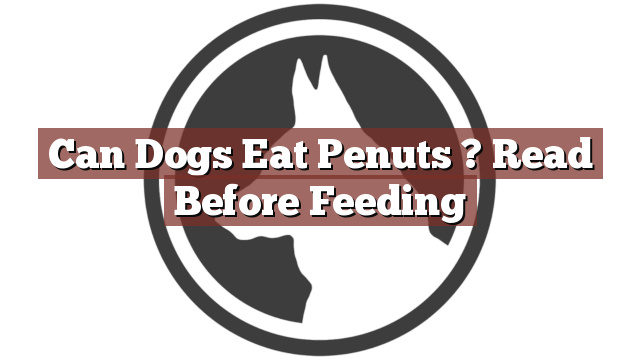Understanding Your Dog’s Dietary Needs
As a responsible pet owner, it is essential to understand the dietary needs of your dog. While dogs are primarily carnivores, they can benefit from a balanced diet that includes certain fruits, vegetables, and even some nuts. However, it is crucial to be aware of which foods are safe for your canine companion and which ones can be harmful.
Can Dogs Eat Peanuts? Read Before Feeding
Can dogs eat peanuts? This is a common question that many dog owners have. The answer is yes, dogs can eat peanuts, but with caution. Peanuts are not toxic to dogs, and in moderation, they can be a healthy and tasty treat for them. However, it is important to note that not all dogs can tolerate peanuts or any other nuts. Some dogs may have allergies or sensitivities to certain foods, including peanuts.
Before introducing peanuts into your dog’s diet, it is advisable to consult with your veterinarian. They can assess your dog’s health and advise you on whether it is suitable for your furry friend to consume peanuts. Furthermore, it is crucial to consider the form in which peanuts are given to dogs. Unsalted, raw, or dry-roasted peanuts are the safest options, as they do not contain harmful additives like salt or seasonings that can negatively affect your dog’s health.
Pros and Cons of Feeding Peanuts to Dogs
Feeding peanuts to your dog can have both benefits and drawbacks. Let’s explore the pros and cons:
Pros:
- Nutritional Value: Peanuts are rich in protein, healthy fats, and vitamins. They can provide your dog with essential nutrients, including vitamin E, niacin, and folate.
- Healthy Fats: The fats found in peanuts can contribute to a shiny coat and healthy skin in dogs.
- Mental Stimulation: Peanuts can be used as a training tool or a puzzle toy filler, providing mental stimulation for your dog.
Cons:
- Allergies: Some dogs may have allergies or sensitivities to peanuts, leading to symptoms like itching, digestive issues, or even anaphylaxis. Always monitor your dog for any adverse reactions after introducing peanuts.
- Calorie Intake: Peanuts are high in calories, and overfeeding can lead to weight gain and obesity in dogs. It is crucial to offer them in moderation as part of a balanced diet.
In Conclusion: Weighing the Benefits and Risks of Feeding Peanuts to Dogs
Feeding peanuts to your dog can be a safe and enjoyable experience if done in moderation and with proper consideration. Before introducing peanuts into your dog’s diet, it is important to consult with a veterinarian to assess any potential allergies or sensitivities. When feeding peanuts, ensure they are unsalted, raw, or dry-roasted, and monitor your dog’s reaction closely.
Remember, every dog is unique, and what works for one may not work for another. As a responsible pet owner, it is crucial to prioritize your dog’s health and well-being. By understanding your dog’s dietary needs and consulting with professionals, you can provide them with a safe and balanced diet that includes appropriate treats like peanuts.
Thank you for taking the time to read through our exploration of [page_title]. As every dog lover knows, our furry friends have unique dietary needs and responses, often varying from one canine to another. This is why it's paramount to approach any changes in their diet with caution and knowledge.
Before introducing any new treats or making alterations to your dog's diet based on our insights, it's crucial to consult with a veterinarian about [page_title]. Their expertise ensures that the choices you make are well-suited to your particular pet's health and well-being.
Even seemingly harmless foods can sometimes lead to allergic reactions or digestive issues, which is why monitoring your dog after introducing any new food item is essential.
The content provided here on [page_title] is crafted with care, thorough research, and a genuine love for dogs. Nevertheless, it serves as a general guideline and should not be considered a substitute for professional veterinary advice.
Always prioritize the expert insights of your veterinarian, and remember that the health and happiness of your furry companion come first.
May your journey with your pet continue to be filled with joy, love, and safe culinary adventures. Happy reading, and even happier snacking for your canine friend!

